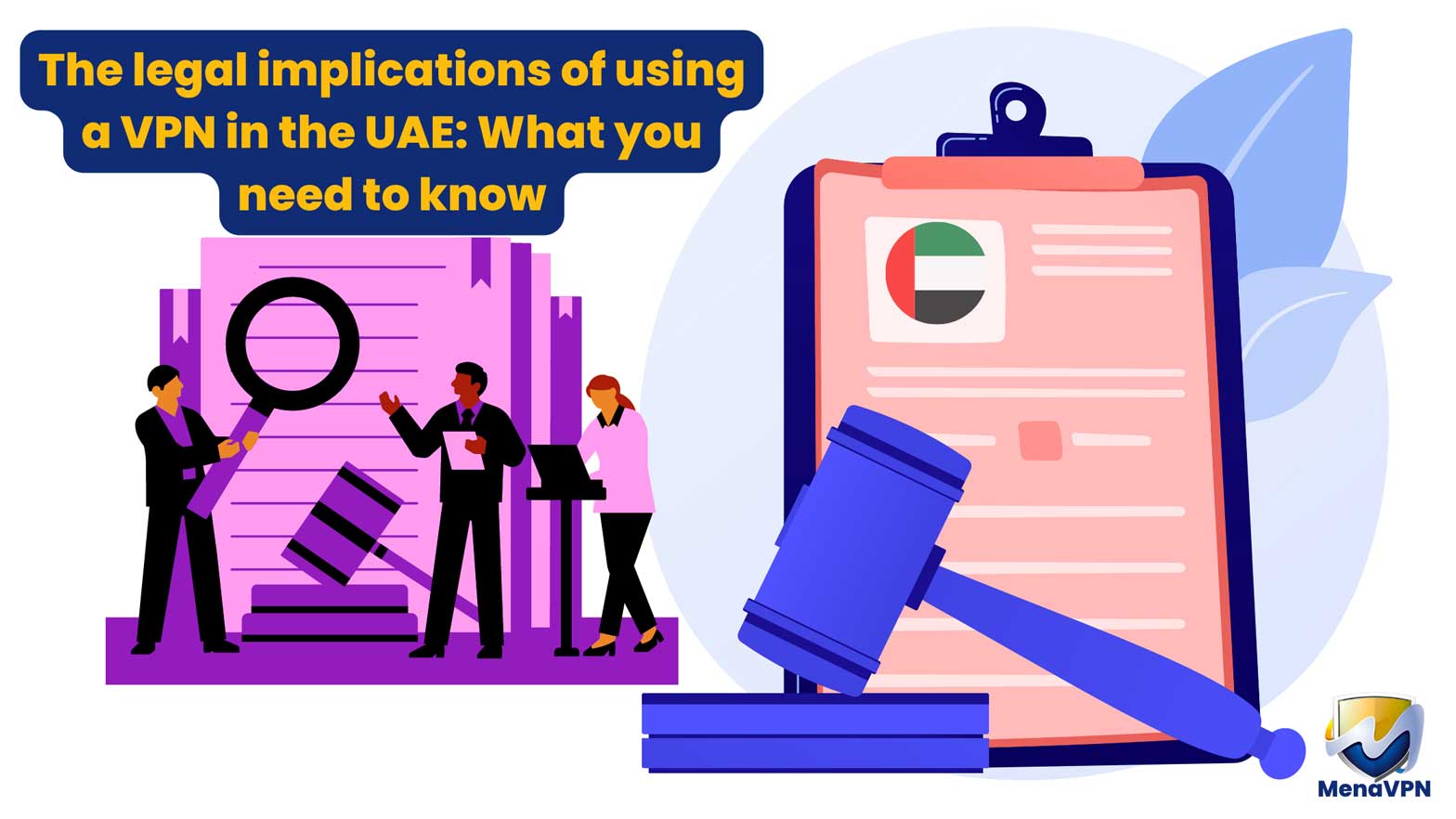Though at first, it might not appear such a big deal to a foreign eye, it can prove a real problem if you're completely taken by surprise by it, that is, unaware of the legal implications of using a VPN in any country.
This is especially important in the case of countries where you employ methods such as a VPN to get around certain geo-restrictions imposed on the internet by the government, like the UAE and many other nations in the MENA region.
It's no secret now that the governments in certain countries try to limit their citizens' access to the internet.
Countries like the UAE, Qatar, and Saudi Arabia have taken similar measures to restrict internet access in their own countries as well. They're not alone in this. It's common practice throughout the whole MENA region, Russia, and China, to name just a few.
This is basically because the government in these countries tends to politicize and regulate the Internet by restricting their residents' access to certain materials and services.
You may wonder why governments impose these constraints on the normal flow of data on the internet. In the case of countries like China or Russia, it's mainly political content, but in the UAE it's both of them with the addition of another component, the commercial side of affairs.
Since the authorities favor the telecom companies such as Etisalat (the majority of whose shares are known to be owned by the government), it is only understandable that they would try to ban and limit any competition whatsoever, especially when that competition is offering the same service almost for free. You could easily make a call that costs you practically nothing, via free VoIP-using services, such as WhatsApp, Snapchat, and FaceTime, while you'd normally pay a fortune to make a call using telecom companies, or their licensed VoIP services like BOTIM, which comes with monthly charges. That's not a pleasing thing to these companies, or their shareholders. This is one of the main reasons why these apps and their call features are blocked in the UAE.
Other types of material on the internet are banned for the reasons that we already gave. A VPN bypasses all of these restrictions on the whole Internet. It may also be used to access content that's either politically, religiously, or culturally sensitive. For example, it is used for streaming services like Netflix and Hulu, tricking the service’s IP trackers into believing that the user is gaining access from the United States or Europe, so the content won't be as limited as is designed to be for someone who's connected from the MENA region. Other examples of the uses of a VPN could be to access dating, gaming platforms, pornographic content, and also all kinds of social media, from Twitter to Facebook and Instagram.
Now what exactly are the legal implications of using a VPN from a general point of view, we can't say, since the laws aren't that crystal clear.
On one hand, there aren't many specific cases mentioned in which it is clarified that it's illegal to use a VPN in the UAE, except for hiding your online identity by “Using a VPN to commit a crime or facilitate a crime”. There was news stating that the use of a VPN by itself does not constitute illegal activity in the UAE if used following the guidelines of the UAE government and the Telecommunications and Digital Government Regulatory Authority (TDRA).
So at first glance, there don't appear to be any legal issues for a UAE resident using a VPN to call a friend or a loved one, since few people would consider that a crime. On the other hand, it is not clear whether this all means banning the use of VPNs altogether or not, and due to the high stakes at play (the possibility of penalty), one gets particularly anxious to find out more, and know what to avoid. It seems to us that besides posting politically sensitive material, accessing pornographic content might be the most frowned-upon bulk of content on the web to the UAE authorities.
What makes one even more confused about the state of internet affairs in the UAE is that recently, the UAE Decree Law No 34 of 2021 on battling rumors (the so-called fake news) and cybercrimes stated that the use of VPN with the purpose of incontrovertible the client's IP address to gain access to banned internet content, such as pornography and gambling websites, as well as other blocked VoIP-using applications for calling, or gaming services, etc. are not allowed, and is punishable by a VPN fine in UAE , with possible jail time. But considering the fact that these laws haven’t made much of an impact to diminish the number of purchases of anti-filtration means such as VPNs, and since, according to some reports, the number has even increased phenomenally, it seems almost unlikely that the UAE law would prosecute the users who simply want to call a family member or friend via WhatsApp, or watch an innocent hour of a sitcom on Netflix. It would prove hard and expensive for the authorities to enforce such a law as well. Having said all this, we'd still advise any concerned UAE resident who wants to use a VPN without worries first and foremost, to seek legal counsel from a lawyer who specializes in UAE cyber litigation.
MenaVPN
This whole discussion of legal issues doesn’t change the incontrovertible fact that today, for any modern person staying in the UAE a VPN is a must-have not a nice-to-have so there’s no question about whether every UAE resident needs a VPN or not. They do. We intend to bring to you the top VPN in the UAE. Our brand of choice, MenaVPN, is a company based in the Netherlands, and naturally, it follows European Union guidelines on user privacy protection matters, so by using it your data won't be collected or stored by the company, hence your online surfing couldn't be monitored by any third-party organization. Once you've downloaded the MenaVPN app for iOS or Android you don’t need to add an email address so you won’t share any of your details and if you use Apple in-app purchases for your payment method, you’ll maintain 100% anonymity. In case you're wondering how you're going to contact us in your time of need, MenaVPN has opened up various means of support. You can either simply send us an email using the address hi@menavpn.com or leave us a message on WhatsApp. If none of those were to your liking, send us a message in our in-app support. This will help with your anonymity to any degree that you might need. So although we can't guarantee you're safe from the UAE government and laws, we can give you assurances as to your safety on the internet. So download MenaVPN and enjoy a 7-day free trial, it's highly recommended both on Google Play and App Store!



